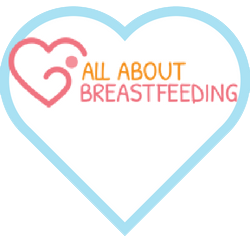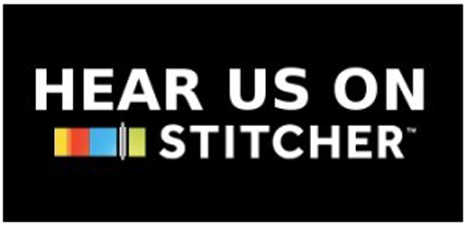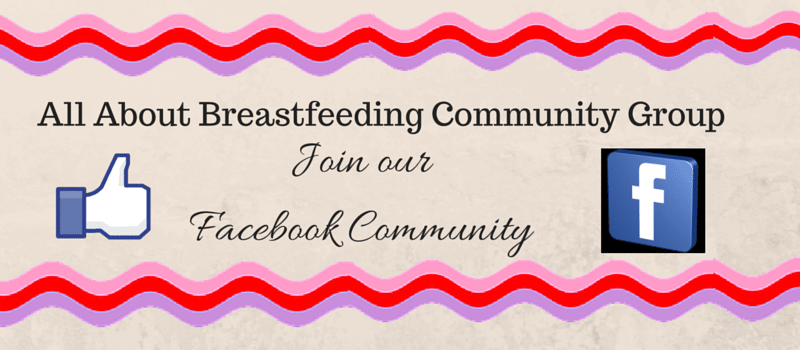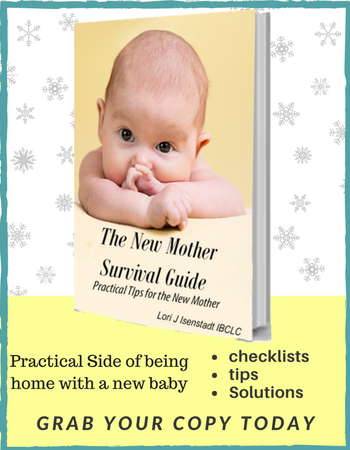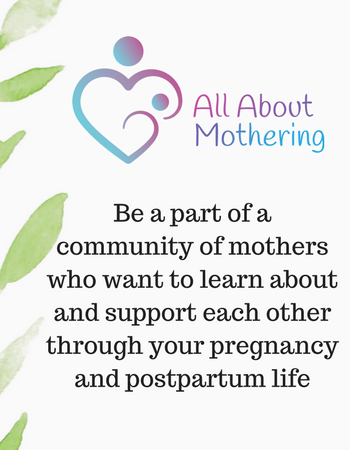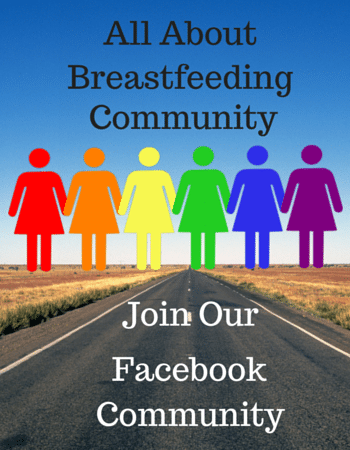Episode 260
Elizabeth, is the mom who is the focus of today’s show, well this is how Elizabeth found out about me.
She found out about my podcast from a friend of hers who shared a few of the shows I previously released. There was one show in particular, with my good friend Fiona Lange
Sharp, who took us all on a heart wrenching journey of what life was like after giving birth to a beautiful baby who had heart issues. Elizabeth said this show really spoke to her as it gave her the confidence to go beyond her world of family and friends to get the help she needed so she could breastfeed her third baby. This was Episode #4 if you want to listen to that show.
She realized I lived locally and called me up. After a brief discussion, we decided to schedule a Skype prenatal consult as her story was quite involved and she was desperate to make a connection with me and wanted to learn all she could to prevent a repeat of her previous 2 breastfeeding experiences. I am choosing to tell you this story because there are so many similarities to the emails that I receive which generally have to do with pain, perseverance and a totally different experience with another baby. Listen to the story of Elizabeth and her beautiful baby daughter named Justine. You will note, as always that the names, dates, sex have been changed. See if you have personally experienced anything like this or have heard of other moms who share a similar story. The All About Breastfeeding show is about education, advocacy and support. We are here for each other and when you have a friend who is struggling with breastfeeding, please let them know there is help available. Don’t stop there, assist them in finding the right help. At the end of todays show, I will review ways in which you can find breastfeeding help so you or a friend does not have to suffer or give up on breastfeeding.
Elizabeth began by telling me that she failed with breastfeeding her first 2 babies.
She said that with her first baby, by the time she came home from the hospital she was already formula feeding, was fine with this and never looked back. That is, until she became pregnant for the second ti me. This time around she told herself that she was going to try harder. You see, she was a mom now, who was connected with a large circle of mom friends she met at playgroups. She told me that she tried hard not to stare at other moms when they were breastfeeding. She did not want her curiosity and longing to be that mother, who was breastfeeding her own baby, to be mistaken for someone who would be perceived as looking down upon this mom who was nursing in public. At the same time, she could not help but fantasize that she would soon join these other breastfeeding moms. Her perception is that it looked so easy and why couldn’t she be just like them.
Elizabeth continued with her story telling me that by the time she came home with her second baby, she continued breastfeeding. However, her nipples were cracked and already starting to bleed, just like with her first baby. She was so determined to make this work that she became creative with helping herself breastfeed through her pain. As she gradually tapered off her pain meds prescribed after the birth, she realized her nipple pain worsened. She began to load up on Ibuprofen, taking it round the clock. This helped somewhat and enabled her to get through the first few days at home. Not wanting to rely on Ibuprofen, she stopped taking it, her pain increased. This is where she said, her creativity kicked in. Everytime she would go to breastfeed her baby, she would put an ice pack between her knees as this helped her to distract herself from the pain she felt while breastfeeding. It actually worked quite well for her dealing with her pain, but her nipples continued to worsen each day.
Well, all of this brought me back to my early days of nursing my beautiful daughter Alisha. She was my first, and breastfeeding her was killing me each time I fed her. Too bad I was not smart enough to think about this ice pack between the knees trick as it may have helped to distract me because all I could do when she fed was to grit my teeth, let the tears roll down my cheek. I didn’t want to let go of supporting her so I did not have a free hand to wipe my face. I carried on most breastfeedings with my face and neck and chest was wet with my tears and my nose was dripping as I counted the minutes until she was done. It became so painful that I started to time her and the minute she seemed to stop, I took her off. This is a long story but needless to say this affected my milk supply which caused me early breastfeeding anxiety.
I pushed away my personal thoughts and continued listening to Elizabeth. She obviously was making a lot of milk and her baby was doing a great job of transferring the milk. Now, this was good and bad for her. You see, at her first pediatric visit, she was told her 5 day old baby was doing great. Only lost a few ounces, which was normal and everything else checked out great. Noone ever asked her how breastfeeding was going and she did not bring up her pain.
Encouraged by girlfriends and reading that she had done, Elizabeth continued to breastfeed through the pain. You see, she was told that her pain was normal, give it a few weeks and it would get better. Everytime she swore she could not breastfeed, even one more feeding, she would remind herself how badly she wanted to be like those other breastfeeding moms. Seemingly breastfeeding in bliss with happy, smiling babies.
If you’ve been listening to this show long enough, you just know that I am screaming out loud at this point. Breastfeeding is not suppose to hurt. Don’t listen to those people who tell you pain is normal for the first few weeks. If BF is hurting on Day 1, something is not right. If BF is hurting on Day 2, something is not right. If BF is still hurting on Day 3, something is definitely wrong and get yourself to an IBCLC who can help you figure out why it is hurting and be there for you, to help find the cause of your pain and work with you to solve this problem so you too can be breastfeeding in bliss. Or in comfort and joy… as I like to say.
My pissy attitude about this comes from other people, thinking they know about breastfeeding, and passing on this piss poor inaccurate, and harmful information and telling the newly postpartum breastfeeding mom that what she is experiencing is normal.
Some might think that I am a bit over the top by calling this inaccurate information harmful. If you don’t understand how breastfeeding works, I get it. You don’t know that pain is the top reason why moms give up on breastfeeding. Totally understandable. I mean, who among us would want to feel extreme pain 8 times a day for 30 or more minutes each time.
It is also harmful because in many cases, nipple and breast pain usually leads to a poorly fed baby. Perhaps not in the early days if mom has a lot of milk, but it will likely lead to the next top reason moms give up on breastfeeding. There baby is not getting enough. Losing too much weight and they quickly go down the route of supplementing by putting their milk or formula in a bottle.
This is exactly what happened with Elizabeth. On her second pediatric visit when her baby was 15 days old, she was praised for bringing in such a healthy well fed baby who was already well above her birthweight. At this visit, Elizabeth was not shy about bringing up breastfeeding and saying how much it was hurting her. She told the Dr. that while her nipples were healing, there was still some feedings that she noticed blood on her nipples.
The pediatrician told her that this happens to many moms in the early days of breastfeeding. She was told this was normal and what she should do is give her baby her milk in a bottle. Now, it great that her pediatrician told her to pump and put her own milk in a bottle instead of formula. She was literally told that obviously she has a lot of milk, but also told that breastfeeding in pain and when bleeding is not good. She needed time to give her nipples to heal and this was her answer to Elizabeths painful breastfeeding. What would I like to have seen her do differently. Well, obviously this pediatrician does not understand that Elizabeth is in a breastfeeding crisis. She needs the proper help and telling her to switch to pumping and bottlefeeding without any other guidance is not incredibly helpful. I, of course, asked Elizabeth if she was given any referrals to local IBCLCs and she said no. Not being a part of the breastfeeding world, she was mildy familiar with this term, but did not really understand exactly what we do and why she needed anymore help as her pediatrician was already helpful. And this thinking, I too, totally appreciate. It is just one of those – you don’t know, what you don’t know moments.
With no further instructions other than pumping and bottlefeeding until her nipples heal, Elizabeth was on her own to figure the rest out. Figuring out the pump use was fairly easy and for that she was grateful because at first it all looked so complicated. After her first pumping, she came up with a plan. Since Elizabeth was able to pump twice as much as her baby was drinking, she did the math and figured out she needed to pump about 4 times a day to get out all the milk her baby needed.
For anyone familiar with breastfeeding you know where this is headed. For newbies to the world of breastfeeding and pumping, you will learn that the general rule of thumb is to pump as often as your baby is taking bottles. So, if your baby is taking 8 bottles a day, you will want to pump 8 times. Now remember, this is not an exact science, and I am sharing with you general information. It might be different for you depending on your supply and your breast storage capacity. But following the general rule is a good way to start.
What happens when you don’t pump frequently enough? This decreased breast stimulation will likely cause your supply to drop. For some it will be a gradual drop and for others it will happen quickly. Either way, this is not what you want to happen.
Elizabeth started pumping and she also purchased some nipple cream her friends had told her about. Within 24 hours, her pain had decreased so much that within a few days she was feeling so much better. She could not believe what a difference this made in her daily life. She actually looked forward to not only feeding her baby, but to playing and being there for her 2 year old. Pumping was easy compared to breastfeeding and so sh e carried on this way for about 5 days until her nipples seemed fully healed.
Getting Justine back to breastfeeding was not easy. She fussed at times and at other times she pushed her arms against her breast so hard and made fists and to Elizabeth it felt like she was forcing her daughter to breastfeed. She was determined though and kept trying, however, as the days went on, she realized that her supply was dropping so that she was making just enough to feed Justine and not having much leftover. This bothered her because she wanted to have a stash in the freezer, but she was not worried about her supply at all. After all, Justine was chunking out and she was proud of the rolls she was developing.
Life is busy as a mom of two and Elizabeth just said that the more Justine got frustrated at the breast, the less she offered and because this was so emotional, she thought that as her supply continued to lower, that while this was upsetting, she chalked it up to all of the emotional stress associated with breastfeeding. She started taking some herbs and eating oatmeal each day as these were things her friends told her to try. She was not sure if they worked or how much they worked, but she was willing to try anything she was told to boost her supply.
She gradually began to supplement the lack of supply with formula and realizing that no matter what she did, her supply just did not really pick up. Pretty soon she decided that since Justine was doing well on the formula and pumping was really a hardship with her busy life, by the time Justine was about 2 months old, she was exclusively formula fed.
At some point in her third pregnancy, she as turned on to this show. One of her friends sent her a link and, of course, I was thrilled to hear Elizabeth say that she went on a binge, going back to the early shows and listening to them whenever she had a chance, which included listening to the show while she drove around town to and from shopping, appointments, etc.
Initially she listened to a few shows where other moms shared their stories. But then she came upon a show in which I shared one of my many breastfeeding mantras: I said it early in the show and briefly it is: If BF – Day, Day 2, Day 3 get help. Hearing me say that BF is not suppose to hurt and if it does it is a sign that something is wrong and you should get help. Well, Elizabeth tells me that she literally cried hearing that. She also said in the next breathe that she was not quite sure if she should believe it, but it sounded good.
She kept my number handy. She called me in her last trimester, she said she wanted to connect with me and asked questions about lactation consults, how much, how soon could she get in after giving birth. I asked her a lot of questions, taking a thorough medical history as it pertains to breastfeeding. We covered a lot of ground during our consult. Near the end, I had given her several options about when she should call be after her baby was born. I also left her with several action steps that she could take before her baby was born and important info for the first day her baby was born.
She left a voicemail very early in the am. She scheduled a home visit. My last appointment of the day, for the following day. We scheduled a time for me to provide a home visit, which was the next day and my last appointment. I wanted to make sure she was discharged from the hospital and all settled in at home.
I showed up at Elizabeths door on time, with my bag of lactation goodies and my scale. Boy, was she ever prepared for me. Her older 2 kids went to a neighbors house. Her husband attended this appointment with his laptop out for note taking and his phone ready for videoing the consult. Elizabeth had her phone out, already had a long list of questions. She let me glance at the questions and after determining that none were pressing to start off with, I asked her if we could put them aside as many of them will be answered during the course of the consult and I would be happy to address the ones that were not answered, before I left.
Elizabeth said that she was already doing a lot better this time than she had been doing last time on the second day. She had already implemented 3 things that I had suggested during our initial phone call. The first was to listen to the collection of shows titled: the first few days of breastfeeding. You can find that on allaboutbreastfeeding.biz under the heading of Podcast and then click on Featured Topics and there you will see the link to the collection of shows I have put together that are all related to what you need to know for the first few days of breastfeeding.
The second thing she did was follow my suggestion about skin to skin. If there was no medical reason to be separated from her baby, my suggestion was to spend the first day in the hospital with her baby skin to skin. As much time as possible. I suggested she learn about laid back breastfeeding and google the video the breast crawl.
The third thing I suggested she do is to do whatever she needed to, to ensure that her first week home she had little to no other responsibilities other than taking care of herself and her newborn. Find someone to help with the basic needs of her other kids and don’t be shy about asking her other mom friends to help chip in… with childcare or bringing meals. I suggested by Ebook, telling her it was only $5.97 and was chock full of practical info on getting ready for a new baby in the house. I was thrilled to see she had purchased it.
As I observed Elizabeth sitting up on her couch, I watched as she bring her baby to the breast, I thought to myself that she was actually doing pretty good. There were some minor tweaks that I could make so she could be more comfortable as she did say her back and neck were bothering her. Like so many moms, she suffered from carpel tunnel syndrome during her pregnancy and this was really acting up also.
Fluid retention during pregnancy can cause symptoms of carpal tunnel syndrome, which often go away after delivery. However, some women report exacerbated symptoms after delivery due to continued early post partum swelling and the constant bending of the wrist in baby care. Wearing a brace can help, but t his sure is a pain in the poop when it comes to handling your baby. If you are sitting in a position in which you need to support your babies weight, this will put additional strain on an area that is already swelling.
Poor Elizabeth had so many pillows surrounding her that it took her about 5 minutes to get herself set up to breastfeed. Never fun with a crying baby. I showed her a few tips on how to make this space on the couch more comfy for her, using less pillows and actually providing better support. This adjustment reduced the pressure on her wrist, helped straighten her back, which in turn helped reduce her need to keep her neck in an awkward position.
It was so interesting to me that this time it was other parts o f her body that were hurting her and her nipples were just a little sore. I asked Elizabeth what she felt the difference was because she was literally cracked and bleeding last time. I was incredibly pleased to hear her response:
Elizabeth said that knowing that she should not accept nipple pain was one of the most helpful things of all. She now went into breastfeeding with a totally different mindset. Knowing that she had connected with me ahead of time, she felt like she had a safety net… someone of experience to go to at the first hint of pain.
This made a lot of sense to me because I can be just like that. I was so incredibly NOT connected when I had my first baby. I was so Incredibly connected by the time I had my baby boy Jesse. I already had a lot of mom friends, I belonged to a Mothers Center, which was a group of fabulous women that I met with on a weekly basis. From this group I had made quite a few very close friends… you know the kind that you can call on at the drop of a hat to come pick up you and the kids at the park because your car battery died and noone else is around. That kind of friend that you can just go over their house at the last minute and they are not going to kick you out because there house is not picture perfect. Better still, the kind of friend you can unload all your pent up _______ and they won’t judge you. Knowing I had trusted friends in the community reduced any anxiety I had about starting over with a new baby, to almost nothing… very little anxiety. I had made friends in the birthing community, the midwifery community, and another group of friends who were into the same health philosophy that I was. Knowing you have people to turn to in times of problems or stress,
Elizabeth also said words that were music to my ears: She felt that listening to the shows I have bundled together that are all related to the early days of breastfeeding, were just filled with so much information that Elizabeth said what was most helpful was to learn what was normal, what to expect, how to know when t hings were g oing souoth, how to prevent these things from happening. And, if they did happen, what she could do about them. Of course, anytime any mom says the next thing that Elizabeth said to me…. well, I feel like: Okay, I can go home now! I have done my job in helping moms prepare for the early days. She said that the advise I gave to start putting money aside during her pregnancy for household help and for lactation help, was a tremendous help. Just like I said, it takes away the stress of the early days because if you need these services, you have the money put aside. So you hire help and do not stress out about it.
Making adjustments to her latching technique, helped her to go from a little nipple soreness to totally comfortable breastfeeding in about 3 days. Encouraging her to lay down or lay back and breastfeed, helped a ton wi th her sore back and neck muscles. In a few weeks she was able to do without her wrist brace as her carpel tunnel gradually decreased and then went away 100%.
When I asked Elizabeth why she was not feeding her baby laying down when I saw her as this would have reduced the muscle soreness. She said that when they saw her doing that at the hospital, they admonished her, scared her to thinking her baby would suffocate and she was scared to try it at home. Once she did it under my watchful eye, under her husbands watchful eye for the next few days, she was off and running and has now become the poster child for laid back feeding. Both her and her baby can be safe, they can both relax during feeding times and not have to worry about pillows and blankets and bed pillows and other pieces of equipment to breastfeed comfortably. during the evening and nightime hours. During the daytime, the tips I showed her about pillow set up is working really well too!
Well, that is my Elizabeth and Justine story. I enjoyed sharing this with you. Of course not every situation is the same… different moms and different babies and different households and different breasts and different nipples…. My hope is that you leave todays show knowing: Breastfeeding is not suppose to hurt. If it does, something is wrong and get expert help. The early days of breastfeeding can be challenging for most of us, particularly the first time moms. Preparing for these challenges in the way of connecting to the right people and preparing your household ahead of time so you don’t have to pay such close attention to the caretaking, well both of these things can greatly reduce the stress many of us feel in the early days of motherhood.
Links mentioned in the show:
<p>Help finding local breastfeeding help:
http://www.ilca.org/why-ibclc/falc
To schedule a consult with me
https://www.allaboutbreastfeeding.biz/skype/
The Breast Crawl –
http://breastcrawl.org/
Laid Back Nursing
https://www.biologicalnurturing.com
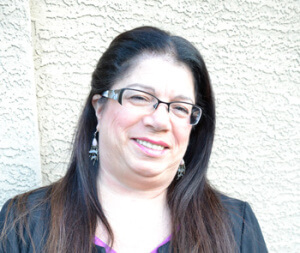 Lori Jill Isenstadt, IBCLC is a huge breastfeeding supporter. She has spent much of her adult life working in the maternal health field. Once she became turned on to birth and became a childbirth educator, there was no stopping her love of working with families during their childbearing years. Lori became a Birth doula and a Postpartum doula and soon became a lactation consultant. She has been helping moms and babies with breastfeeding for over 25 years. Lori founded her private practice, All About Breastfeeding where she meets with moms one on one to help solve their breastfeeding challenges. She is an international speaker, book author and the host of the popular itunes podcast, All About Breastfeeding, the place where the girls hang out. You can reach Lori by email at: [email protected] or contact her via her website: allaboutbreastfeeding.biz/contact
Lori Jill Isenstadt, IBCLC is a huge breastfeeding supporter. She has spent much of her adult life working in the maternal health field. Once she became turned on to birth and became a childbirth educator, there was no stopping her love of working with families during their childbearing years. Lori became a Birth doula and a Postpartum doula and soon became a lactation consultant. She has been helping moms and babies with breastfeeding for over 25 years. Lori founded her private practice, All About Breastfeeding where she meets with moms one on one to help solve their breastfeeding challenges. She is an international speaker, book author and the host of the popular itunes podcast, All About Breastfeeding, the place where the girls hang out. You can reach Lori by email at: [email protected] or contact her via her website: allaboutbreastfeeding.biz/contact 
Listen Here
Submit a comment
your email address will not be published
